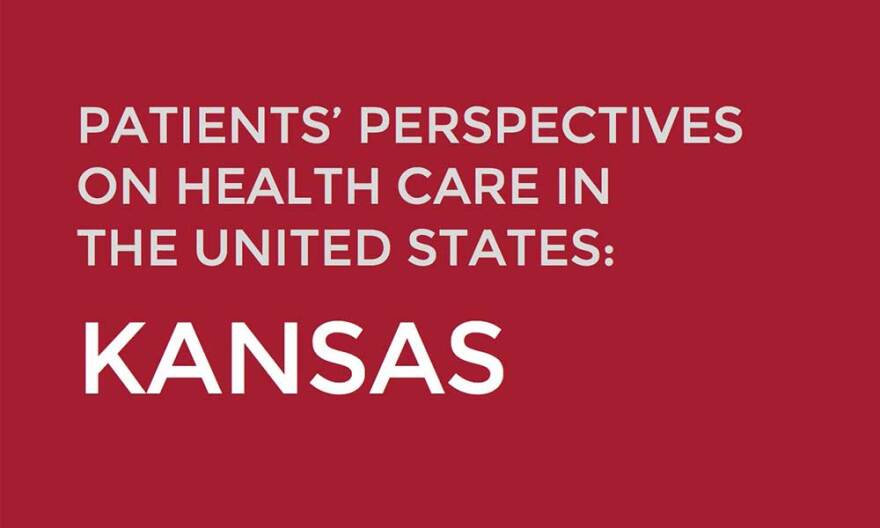A new poll from NPR, Harvard, and the Robert Wood Johnson Foundation explores Americans' experiences with the health care system in the two years since the Affordable Care Act was fully implemented. Kansas was one of seven states singled out for closer scrutiny. And while much of what Sunflower State residents said followed national trends, there were some notable exceptions.
Of all the states surveyed, Kansas is where the Affordable Care Act is the least popular. Harvard’s Robert Blendon was primarily in charge of conducting the poll.
“Twenty-six percent thought things got better as a result of the ACA in Kansas, and 13 percent thought their own lives were helped, but in terms of the overall figures, people were much more negative about the impact on Kansas as a whole, and about individuals,” Blendon says.
Thirty-nine percent of Kansans surveyed felt the health care law has been detrimental to the people of Kansas. That compares with 27 percent nationwide. Blendon sees two main factors behind these numbers.
“A real concern, greater than the other states, about the cost of health care for them and the state, and the other is this sense of concern that many Republicans have that the law wasn’t the right thing to do," he says. "The two together is why I think Kansas stands out as being more critical of the ACA than other states.”
The Kansans with the most negative views about the health care law tend to be older than 65, rural, and Republican. They also say their health care costs are unreasonable, and that they’ve experienced serious financial problems as a result. Blendon says the level of concerns about costs surprised him.
“Kansans are much more concerned about rising health care costs than people in other states," he says. "They think they’re going up. They’re more concerned about the future. They’re worried about their insurance premiums. They’re more likely to say their own health care costs are unreasonable. More people in Kansas reported serious financial problems with health care than other states.”

The finding that a lot of Kansans are not happy with the Affordable Care Act comes as no surprise to Mike Walker, assistant director of the Docking Institute of Public Affairs at Fort Hays State University. The Institute has been doing its own polling of Kansans for the past seven years.
“And we did see in our own data that Kansans were not favorable toward ACA overall," Walker says. "I mean, there was a large portion that were favorable, but the majority of folks were not.”
Walker says Kansans almost always vote Republican. What’s more, the president is not popular in Kansas, and that carries over to his signature health care law.
“A lot of Kansans just seem to dislike Obama, more specifically," he says. "So I think those two things sort of lay a foundation for just opposing something that a Democratic president might come up with, and especially Obama.”
Walker says while it’s clear that Kansans are concerned about health care costs, it’s not clear whether those cost increases are real, and actually caused by Obamacare.
“My experience tells me that people that have experienced their cost going up, or perceive that their costs are going up, are more likely to be vocal about the issue, and complain about the ACA," he says. "Folks that aren’t impacted by it aren’t going to say anything about it.”
Walker says if costs are increasing significantly, that may be due to better coverage that people have now, thanks to the ACA—something they may not appreciate until they get sick or injured. Walker says the health care law is complicated--and it’s understandable that people might be confused about it, especially with the almost constant attacks on Obamacare from the state’s political leaders.
“But I kind of think that people don’t want to understand these issues, because it runs like a brick wall against their support for the Republican Party, and their opposition to Obama in general," he says. "They just throw their hands up in the air and say, ‘Well, I really don’t want to know about these issues.’”
Walker says the real test will be to see how attitudes toward the ACA evolve, as people get more personal experience with it over time.





